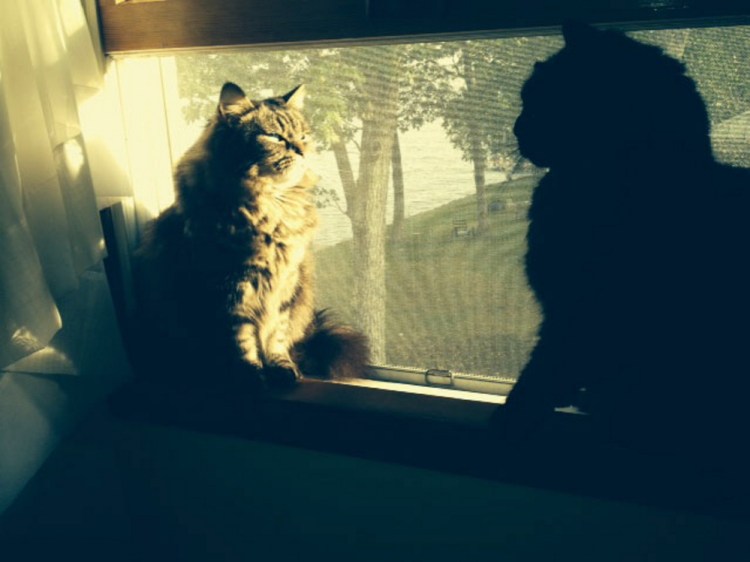We know it’s time to move back to town from camp when the cats start getting antsy.
It’s way past the first of September and Bitsy tried to escape yesterday.
Pip and Bitsy have the run of the place at home in Waterville. They are the king and queen of the neighborhood and lord over the property, rarely letting any other cat approach unless it is a friendly, obsequious sort.
At camp, however, we do not allow our 9-year-old felines to go outside, as a neighbor told us long ago she has lost several cats to the nearby highway or to errant dogs.
But the cats have plenty of windows to lounge in over the summer, affording them views of boats in the water, neighbors coming and going, squirrels, loons, ducks and chipmunks.
The cats love it all, but when Labor Day arrives and the cicadas start buzzing and mourning doves coo, they know activity will wind down and a move home will soon be afoot.
The problem is, they don’t know just when, nor do we, as we wait until the heat leaves and the mornings and evenings become colder and darker.
Leaving the camp means leaving summertime, and that is a difficult pill to swallow.
Yes, September — and even parts of October — can be warm and inviting, but we know what follows.
Fall is good with its colored leaves and rejuvenating air, and November and December bring the fun, festive holidays, of course, but what’s there to follow?
Three months of cold, ice, wind, snow and darkness to be exact.
We can’t quite imagine it now, but those first several weeks of the new year are tough going, especially as we get older and our bones creak and ache in the frigid mornings.
September is our transition month, where we pack up our summer things and bid adieu to the season.
That means emptying the camp cupboards, stripping the beds, folding linens and blankets and storing them in bureaus, covering furniture and picking the last of the ripe tomatoes and zucchini from the garden.
For the last couple of weeks, I’ve left camp in the morning on my way into town with an extra bag of summer clothes, books or food I know we will not need for the rest of our stay.
That gradual emptying out of camp makes the final, physical move easier and the sadness of leaving less poignant.
It’s difficult, being in that transition time, where our psyches are partly at camp and partly home.
The cats know it as they watch me hauling those bags out the door. They feel it in the air.
As I opened the door last night to come in from work, Bitsy, our little gray and tan-striped Maine coon, tried to exit. She was part way onto the step when I screeched and scared her so, she ducked back in.
She and Pip, a large, black cat — sans a tail — do not try to escape in the thick of summer. They peer out when we open the door, but know to stay inside.
But now, as the activity on the lake wanes, the sun dips beneath the horizon at 7 p.m., and we are in bed by 9, they prepare, as we do, for leaving.
Their cat carriers are the last thing to go, piled on top of the final baggage in the back seat of my car.
They don’t meow anymore as they did when they were kittens. I place their carriers nose-to-nose so they can commiserate on the short ride home, and in the blink of an eye, we are there.
When we arrive, they’ll sniff the air, make their annual foray around the house and generally they’ll be delighted. As long as they’re with us, they are content.
And we will pick up where we left off. We’ll open windows, fill cupboards, sweep off the porch and settle in for what is expected to be a long, snowy winter.
Amy Calder has been a Morning Sentinel reporter 27 years. Her column appears here Mondays. She may be reached at acalder@centralmaine.com.
For previous Reporting Aside columns, click here.
Send questions/comments to the editors.




Comments are no longer available on this story